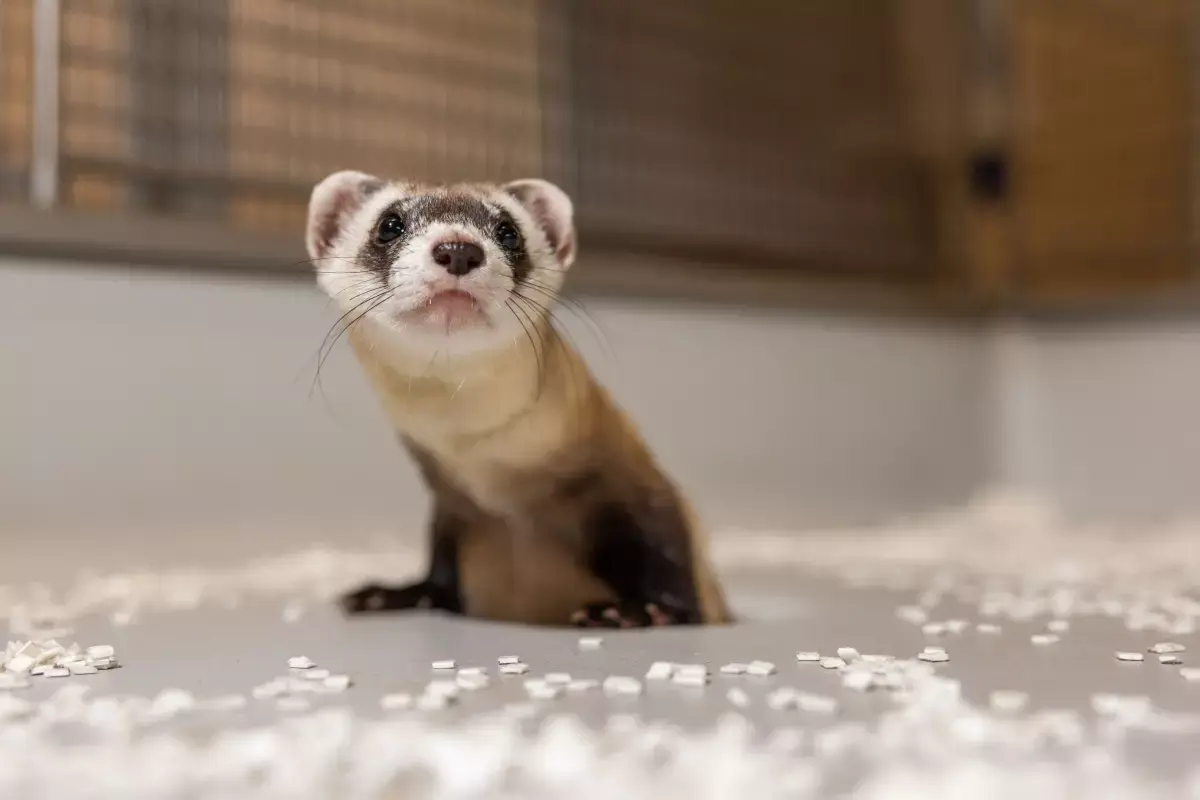1 min read


Wyoming –– In April, the U.S. Fish and Wildlife Service and its genetic research partners announced the birth of two new black-footed ferret clones – known as Noreen and Antonia.
Noreen was born at the National Black-footed Ferret Conservation Center in Colorado, while Antonia lives at the Smithsonian’s National Zoo & Conservation Biology Institute in Virginia. Both ferrets were cloned from the same genetic material as another clone born in 2022, Elizabeth Ann. Antonia and Noreen are healthy and continue to reach expected developmental and behavioral milestones, according to the federal agency.
Elizabeth Ann lives at the National Black-footed Ferret Conservation Center in Fort Collins, Colorado, but is unable to breed, due to a reproductive organ issue that isn’t a result of being cloned, the Fish and Wildlife Service said in a statement.
Black-footed ferrets are a type of weasel easily recognized by dark brown or black eye markings resembling a robber’s mask. Charismatic and nocturnal, they feed exclusively on prairie dogs while living in the midst of the rodents’ sometimes vast burrow colonies.
All three ferrets were cloned from tissue samples collected in 1988 from a black-footed ferret known as Willa and stored at the San Diego Zoo Wildlife Alliance’s Frozen Zoo. For 50 years, the organization has worked to collect and preserve genetic samples, taken during routine exams or after animals have died, from as many species as it can.
The clone ferret samples contain three times more unique genetic variations than found on average in the current population. Researchers said introducing those currently unrepresented genes into the existing population would significantly benefit the species’ genetic diversity.
All black-footed ferrets alive today, except for Antonia, Noreen and Elizabeth Ann, are descendants of the last seven wild individuals, according to the federal agency. Genetic diversity can improve a species’ ability to adapt and survive despite disease outbreaks and changing environmental conditions.
Black-footed ferrets are now a conservation success story — after being all but wiped out in the wild, thousands of them were bred in captivity and reintroduced at dozens of sites in the western U.S., Canada and Mexico since the 1990s.